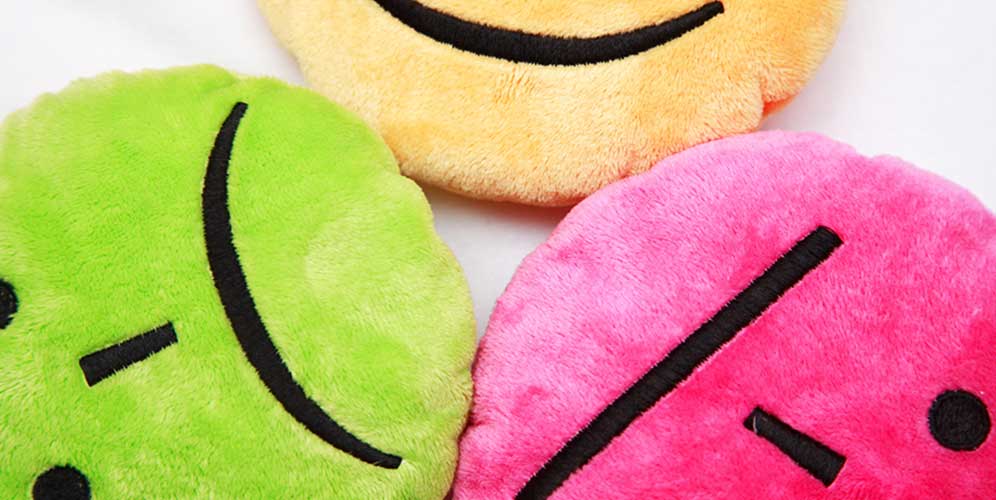How stressed are you feeling right now?
Good listening is particularly important right now
Facing facts
Have you felt more than a little stressed and sensed you’d like to know how to deal with stress more productively? Many UGM clients raise this issue with us in all sorts of contexts. In fact, stress is frequently one element that motivated them to seek our coaching services.
Our clients often find themselves in the midst of challenging circumstances at work: complex strategic problems to resolve, multiple decisions to make with tricky implications on every front and always against a backdrop of never-ending demands on time and energy. In addition, once a client gets talking, other pressing issues in the personal area can emerge, including family matters, which can compound their sense of stress. No-one can entirely segment their life into compartments. Concerns in one area have a tendency to spill over into other areas. These can combine to overwhelm even the most talented and capable people at times. Did you know that things which are enjoyable, such as taking a holiday or moving to a great new home, are also known stressors!
What about you? On a scale of 1 to 10, where 1 is very little stress and 10 is massive stress, how would you rate your life right now? Would you give different scores to your work life and your personal life? If you rated both as ‘quite stressful right now’, this would not be surprising. Studies suggest that, at any one time, about a third of people experience unacceptably high levels of stress and pressure. For many, stress at work can be intensified by stress at home, lowering the ability to cope.
The difference between stress and strain
The ‘father’ of stress research is undoubtedly Hans Selye, a Hungarian-born endocrinologist who spent most of his life in Canada. He set up a large research unit at Montreal University where he conducted pioneering investigations into how human beings cope with stress. Selye received numerous awards and published an incredible stream of over 1,700 research papers. A key focus of his work was why some people seem to cope better than others.
But a point worth noting is that, before he died, Selye felt he had made a grave error in allowing the popular media to grab onto the idea of stress being something that you should minimise or even eradicate from your life. He said he should have insisted that people use the term ‘strain syndrome’ instead. Selye’s point was that our modern preoccupation with the idea of stress has created the false idea that this thing called stress is our enemy, constantly attacking us and harming us. In contrast, Selye’s findings showed that stress is more correctly understood as external pressure, while strain is the internal effect on you of that pressure. No one likes too much external pressure. But a certain amount is actually good for you. It stimulates your thinking and reactions, much as everyday challenges to your immune system help to keep it healthy, enabling you to withstand a major infectious assault, should that come your way.
So stress turns out to be normal and even inevitable. And some periods of your life can be really stressful! The issue is rather how you react and the extent to which you experience stress as strain. It’s the strain that’s the real problem, not the stress.
Resilience as the key
Researchers began to notice that some people cope remarkably well, even when they find themselves in circumstances that, by any standards, would seem to be extraordinarily stressful. Such people showed resilience. Hence the studies shifted to looking closely at what resilience is and how it can be learned. There’s no doubt that resilience is a vital attribute that you need if you’re to cope well with the complexities of modern life. So it’s time to start your resilience journey!
Your first steps
It seems there are essential steps everyone can take, whatever their current level of resilience. The first of these steps is to make a list of 5 or 6 things that are currently upsetting or stressing you. Ask yourself questions like these: ‘What is currently distressing me? How are my work and my personal life different from a year ago? What exactly is it that’s difficult and what am I feeling?’
Your second list is an outline of the positive experiences you enjoy. Ask yourself: ‘What gives me pleasure? What do I get enthusiastic about? What would I like to do that I keep postponing? Who do I enjoy doing things with? When do I sleep best? What positive aspects of my life am I ignoring?’
Deciding to act
Your first actions are simple but powerful. Look at your list of negative experiences and select one. Decide on a way to decrease the negative impact (strain) it has one you. Ask, ‘What could I do to change how this bothers me?’ This might be something quite small. If you can’t make a stress go away, you can work on your response to it.
Your second action involves deciding how you might increase the number of positive, pleasurable experiences in your life. Take something from your list and think of ways you can include more of this in your life. Create a plan for more pleasure!
The box at the side will help you complete this stage of your journey and in future briefings you’ll learn about stage two. Good luck!
PRACTICAL IDEAS TO APPLY IN YOUR BUSINESS
Practical actions you can take to reduce strain in your life
- Supporting yourself
- Draw up a plan to strengthen your physical and emotional health.
- Observe what causes you to feel strain. Imagine yourself just feeling amused or indifferent instead.
- Observe how this makes you feel.
- Next time a regular stressor occurs, try out your new response.
- Notice any times when you actually enjoy a mental or physical strain.
- After a period of strain, consciously focus on breathing slowly and deeply.
- As you brush your teeth at night, recall times in the day when you handled a strain or a challenge well. Congratulate yourself!
- Supporting others
- Ask these 2 questions: “How are you feeling about what’s happening?” and “What are you doing to take care of yourself?”
- Then listen with close attention to what your friend or colleague says. Just having someone listen has been shown to lessen strain.



